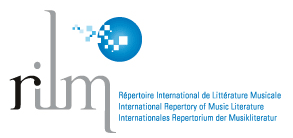Towards a Theory of the Experience of Music: Body, Cognition, and Sense
Keywords:
embodied cognition, cognitive semantics of music, musical understanding, music perception, psychology of musicAbstract
Music theory has always been fundamentally pluralistic, interdisciplinary and adaptive. However, our theoretical tradition has not left us models originating from musical practice. Throughout Modernity, musicians and music theorists have sought to explain the processes of production and musical reception based on studies of mathematics, acoustics, rhetoric, and physiology, always anchored in some philosophical strand. It is the turn of the 1980s to the 1990s that musicology has systematically faced the challenge of developing “resident” theoretical models, original in the sense of revealing and relying on specific and even exclusive experiences of our interaction with music. As a consequence of the overcoming of the otherness of the perceiver and object of musical listening (the traditional condition of objectification of musical expression), the new condition of music science has imposed the incorporation of new theoretical-methodological contributions to the production of knowledge in creative musical processes. I think the crucial problem of the discussion, at this moment, is the overcoming of the incommunicability between the “epistemic dialects” of the structuralist tradition and the embodied semantics of music, in order to reopen this field of investigation.
Published
Issue
Section
License
ATTRIBUTION-NONCOMMERCIAL 4.0 INTERNATIONAL
https://creativecommons.org/licenses/by-nc/4.0/
You are free to:
- Share — copy and redistribute the material in any medium or format
- Adapt — remix, transform, and build upon the material
- The licensor cannot revoke these freedoms as long as you follow the license terms.
Under the following terms:
- Attribution — You must give appropriate credit , provide a link to the license, and indicate if changes were made . You may do so in any reasonable manner, but not in any way that suggests the licensor endorses you or your use.
- NonCommercial — You may not use the material for commercial purposes .
- No additional restrictions — You may not apply legal terms or technological measures that legally restrict others from doing anything the license permits.
Notices:
You do not have to comply with the license for elements of the material in the public domain or where your use is permitted by an applicable exception or limitation .
No warranties are given. The license may not give you all of the permissions necessary for your intended use. For example, other rights such as publicity, privacy, or moral rightsmay limit how you use the material.







